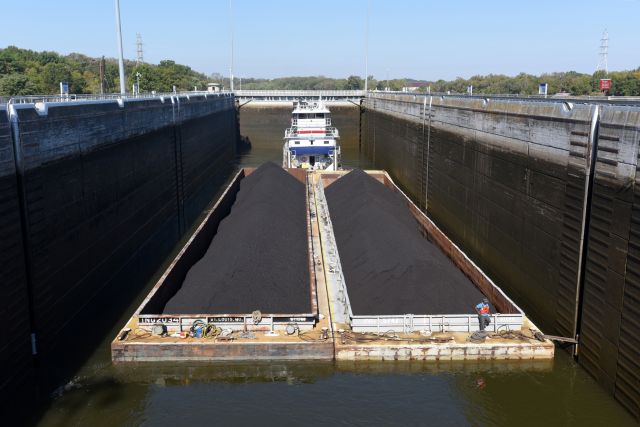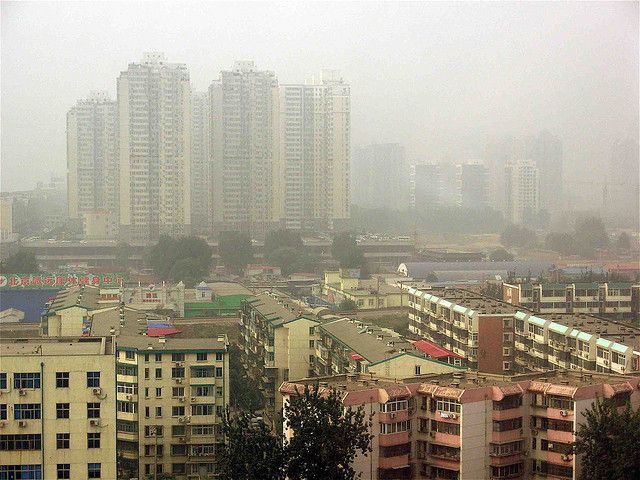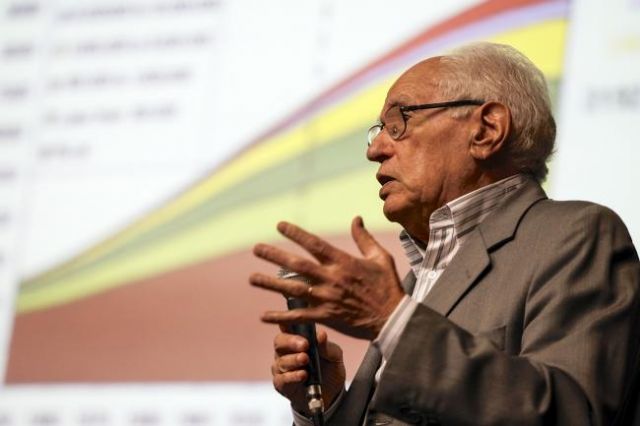Blog
Pavan Sukhdev Discusses 4 Ways to Create More Sustainable Corporations
“To tell the story of the corporation is to tell the story of a grand bargain gone awry,” says Pavan Sukhdev in his new book, Corporation 2020: Transforming Business for Tomorrow’s World. It’s a bold statement, but he backs up his claim persuasively.
A Look Inside Facebook’s Carbon Footprint
Facebook, a business that relies so heavily on people’s willingness to share information, took an important step recently by sharing some details of its own. The social networking company has, for the first time, released information about its greenhouse gas (GHG) emissions.
Global Launch of the GHG Protocol Corporate Value Chain (Scope 3) and Product Lifecycle Standards in New York City
Calculation Tools to be Updated
Development of GHG Protocol Online Development Course
GHG Protocol Currently Seeking Funding for Major Tool Upgrade
Climate Risk Experts: Transparency Should Be Fossil Fuel Companies' New Normal
A panel of economic experts unveil a set of recommendations to protect investors from a head-in-the-sand approach to global warming's inevitable impacts. That is the recommendation of a blue-ribbon panel convened by the economically powerful Group of 20.
3 Reasons Why Fossil Fuel Companies Should Disclose Their Reserves
Fossil fuel companies hold vast oil, gas and coal reserves that help determine their market value. These reserves are also the basis to understanding the potential climate risks of burning these fuels. Yet not a single fossil fuel company in the world discloses potential emissions from their reserves – and that is a big problem.
A Better Way for Cities to Measure Greenhouse Gases
Until now, there was no universal, comprehensive methodology for cities around the world to measure their emissions. One of the tool's creators explains its power in the fight against climate change.
Cities launch yardstick to measure greenhouse gas emissions
A coalition of the world's biggest cities has launched an international tool that will for the first time allow many local authorities to measure their greenhouse gas emissions, providing them with a baseline...
Giving cities a road map to reducing their carbon footprint
Cities are not just where 3.5 billion of us live—they are where more than half of humanity uses electricity, drives cars, and throws out garbage, among myriad other activities that emit greenhouse gases. Now, a global coalition has released the first standardized method for measuring and reporting a given city’s greenhouse gas emissions.
Staying on Track: A New Tool for Designing and Meeting Emissions-Reduction Goals
China just announced a mitigation goal to peak its emissions by 2030 or earlier, while the United States committed to reduce its national emissions by 26-28 percent below 2005 levels by 2025. And countless other cities and countries have set similar emissions-reduction targets.
Everything You Need to Know About Agricultural Emissions
The Greenhouse Gas Protocol launched a new guidance this week to help agricultural companies measure and manage their greenhouse gas (GHG) emissions from crop and livestock production. It is the first such international guidance for the sector, and will help underpin efforts to mitigate agriculture’s environmental impact.
Leading Indian Businesses Participate In The First GHG Clinic Organized By The India GHG Program
Key environmental, sustainability and operational representatives from fourteen leading Indian businesses participated in the first ever GHG Clinic, i.e. capacity building and technical workshop on developing corporate inventories based on the GHG Protocol Corporate Standard and the Corporate Value Chain Standard.
Banks to Receive Guidance on Reporting Emissions in Lending
When the 2011 Newsweek Green Rankings were published, it came as a surprise to many that seven of the worst performing US companies were financial firms. The reason for such a poor performance was inadequate reporting of emissions in corporate supply chains; in the case of financial firms, emissions from their lending and investment portfolios.
3 Beginning Steps to Designing a National Greenhouse Gas Reporting Program
By Neelam Singh and Avipsa Mahapatra - September 12, 2013
Rio de Janeiro Poised to Update Its Greenhouse Gas Inventory
Rio de Janeiro is a leader among the Brazilian cities aggressively promoting low-carbon development. Now Rio is conducting a GHG inventory for 2012, the first target year under its climate change law.
33 Cities Test New Framework for Community-Scale Greenhouse Gas Inventories
A growing number of countries and companies now measure and manage their emissions through greenhouse gas (GHG) inventories. Cities, however, lack a common framework for tracking their own emissions—until now.
6 Lessons Brazilian Cities Learned From Greenhouse Gas Inventories
Last week in São Paulo, WRI, ICLEI, C40, USP-IEE, and EMBARQ Brazil jointly brought together more than 200 Brazilian city officials and experts to discuss how to use the Global Protocol for Community-Scale Greenhouse Gas Emissions (GPC) to measure and manage greenhouse gas (GHG) emissions from cities.













